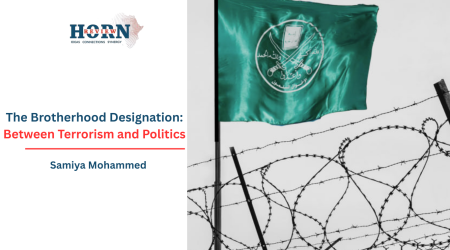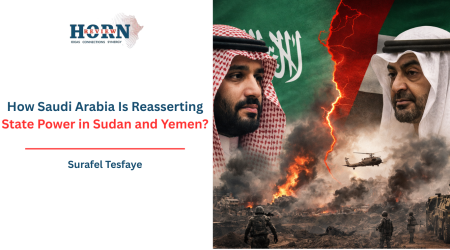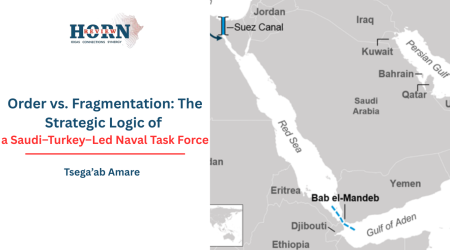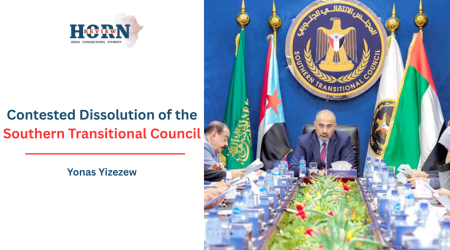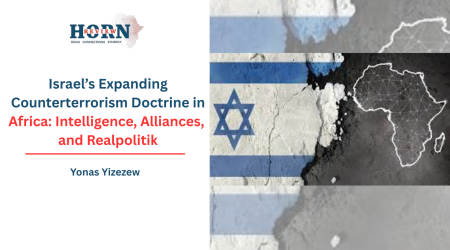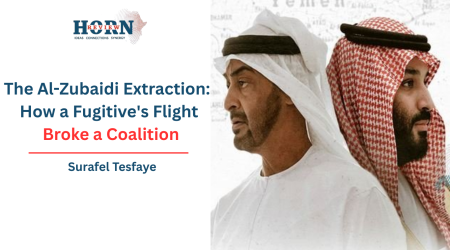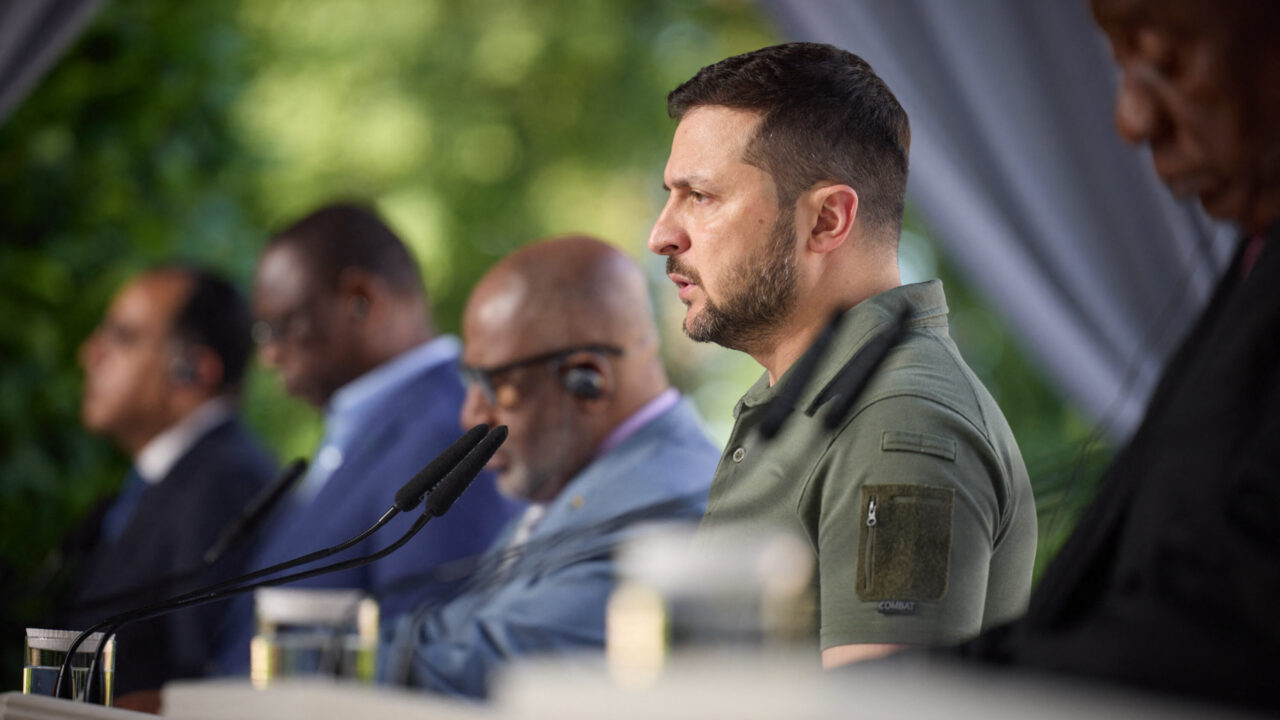
30
Jul
Ukraine’s Diplomatic Ascent: Will a New Embassy in Sudan Challenge Established Influences?
Since April 2023, Sudan has been embroiled in a deadly civil war, emerging unexpectedly as a battlefront in world power politics, notably drawing in Ukraine. Having been trapped in a partisan war between the Sudanese Armed Forces (SAF) and paramilitary Rapid Support Forces (RSF) for long, this intra-state conflict has developed into a multi-layered proxy battleground. Ukraine’s involvement is a direct extension of its broader conflict with Russia, aiming to disrupt Moscow’s global operations (The New Arab, 2024).
This strategic pivot, however, risks worsening Sudan’s already existing internal instability, as well as extending an already devastating humanitarian crisis.
Sudan’s strategic importance is undeniable. With a significant Red Sea coastline and proximity to the Suez Canal, control over Port Sudan offers key geopolitical advantages. This strategic location has attracted outside players, most notably Russia, which has long sought to secure a naval base in the country as part of its wider ambitions for global power projection.
Russia’s Persistent Pursuit: A Red Sea Foothold
Russia’s ambition to establish a naval presence on the Red Sea coast of Sudan is a long-standing strategic imperative, reflecting Moscow’s drive for global power projection. The groundwork for this was laid during former President Omar al-Bashir’s tenure. In 2017, Al-Bashir and Russian President Vladimir Putin agreed to construct a naval base capable of accommodating several hundred soldiers and up to four ships. This period saw Sudan align with Moscow on significant international issues, including Russia’s annexation of Crimea, as Al-Bashir’s government sought Russian protection against Western pressure. By 2020, a preliminary agreement formalized plans for a logistics center near Port Sudan, envisioned to host up to four ships, including nuclear-powered vessels, and 300 personnel for a 25-year lease. This base was crucial for Russia, offering a naval presence in the Red Sea and extending its reach into Africa and the Indian Ocean, especially after the loss of its Tartus facility in Syria (Horn Institute, 2025).
However, the initial agreement faced significant hurdles. In 2021, the civilian transitional government that succeeded Al-Bashir suspended the deal, citing its non-ratification by an elected body and broad domestic and international opposition (The Moscow Times, 2021). This created a strategic opening that Russia was quick to exploit. Moscow’s ambiguous response to Al-Burhan’s October 2021 coup, in stark contrast to immediate Western condemnation and its subsequent diplomatic support, including a UN veto and summit invitations, directly followed this revocation. General Al-Burhan’s renewed commitment to the base coincided with the imposition of U.S. sanctions against him, indicating a clear transactional relationship: Russia provides legitimacy and material support to an isolated military regime in exchange for strategic access to the Red Sea.
Foreign Minister Ali Youssef Ahmed al-Sharif recently re-approved Russia’s first African naval base near Port Sudan, stating there were “no obstacles” and “complete agreement” (Middle East Monitor, 2025). Russia has sweetened the deal with offers of complimentary arms shipments, hydrometeorological information for the Red Sea, and the construction of a pier for Sudanese warships. Despite these advancements, risks persist, including continued instability, domestic opposition, and foreign objections, particularly from the United States, which has threatened sanctions to deter Sudan from deepening ties with Russia.
Russia’s Dual Strategy: Supporting Both Sides
Beyond its support for the SAF, Russia has also been implicated in providing extensive backing to the Rapid Support Forces (RSF), primarily through the Wagner Group. This dual engagement strategy highlights a calculated approach to secure diverse interests within Sudan. The extent of Russia’s support for the RSF largely centers on economic exploitation, particularly in the gold sector. Through Wagner Group entities like M Invest and Meroe Gold, Russia has secured lucrative gold mining concessions in Darfur and Blue Nile. These ventures bolster Russia’s gold reserves, provide a means to bypass international sanctions, and deepen ties with Sudan’s ruling elites, with the extracted gold reportedly funding Russia’s ongoing war in Ukraine (Al Jazeera, 2023).
In exchange for military aid, Sudan has reportedly granted Russian entities preferential treatment, including a 30% stake in multiple mining projects. Moscow’s support for RSF leader Hemedti has played a role in consolidating his power, thereby disrupting Sudan’s democratic transition. Russia has also expanded its energy trade with Sudan, delivering 70,000 metric tonnes of diesel to Port Sudan in April 2023 (LSEG data, via Energy News, 2024). Financial ties are further cemented through security contracts, with the Sudanese intelligence-linked firm Aswar reportedly receiving millions to facilitate Russian military operations, including visa processing, weapons supplies, and logistics (OCCRP, 2022).
This alleged support for both the SAF (for the naval base and diplomatic leverage) and the RSF (for gold and economic gain) is not a contradiction but a calculated hedging approach. By cultivating relationships with both dominant military factions, Russia ensures its interests—strategic access, resource extraction, and sanctions evasion—are advanced regardless of which side ultimately prevails or how power dynamics shift in Sudan. This strategy benefits from prolonged instability, allowing continued access to resources without a strong, unified Sudanese government to challenge its presence.
Ukraine’s Bold Scheme: Extending the Front Line to Africa
Ukraine’s involvement in Sudan represents a notable and high-risk extension of its conflict with Russia onto the African continent. There are credible reports of Ukrainian special operations conducting military operations in Sudan aimed at “rebels and Russian military units” of those mercenary groups aligned with Wagner (Militarnyi, 2024). This intervention is explicitly presented as a strategic component of Ukraine’s broader effort to “disrupt Russia’s military and economic operations abroad, make the war more costly for Moscow, and position itself as a bulwark against Russian incursions.”
General Abdel Fattah al-Burhan, Sudan’s military ruler, sought assistance from Ukrainian President Volodymyr Zelenskyy after Sudan had covertly supplied weapons to Ukraine in 2022, suggesting a reciprocal arrangement (Kyiv Independent, 2024). Following Al-Burhan’s request, Ukrainian soldiers reportedly landed in Sudan within weeks, initiating combat actions aimed at dislodging rebel forces from Khartoum (EL PAÍS, 2024; CNN, 2023). Ukrainian Defense Intelligence Chief Kyrylo Budanov articulated the rationale: “War is a risky business. We are in a full-fledged war with Russia. They have units in different parts of the world, and we sometimes try to strike them there.”
Beyond direct combat, Ukrainian military personnel have reportedly begun training Sudanese soldiers in tactics effective against the larger Russian army, with a particular emphasis on “the use of drones.” Ukrainians allegedly facilitated the delivery of Turkish Bayraktar TB2 drones to Sudan in February, and experts largely attribute recent significant advances by Burhan’s forces to “precision drone strikes, as well as the deployment of the Sudanese army’s elite units.”
The conflict has resulted in tens of thousands of civilian deaths and accusations of war crimes against both sides. Former U.S Secretary of State Antony Blinken’s expression of condemnation of material assistance concerning these atrocities implies possible diplomatic backlash. This demonstrates Ukraine’s willingness to accept substantial reputational and political risks, prioritizing the disruption of Russian operations over potential accusations of complicity in a severe humanitarian crisis.
Crucially, Ukraine’s diplomatic footprint in Sudan and the broader Horn of Africa region reflects a strategic move aimed at bolstering its presence in its international reach as a measure of counterbalancing Russian domination. Diplomatic relations between Ukraine and Sudan were formally established on June 4, 1992. While Sudan currently falls under the jurisdiction of the Embassy of Ukraine in Egypt, and Ukraine maintains an Honorary Consulate in Khartoum, Kyiv has announced ambitious plans to open a full embassy in Sudan in 2025. This initiative is part of a broader strategic push to establish 10 new embassies in Africa since Russia’s 2022 invasion, raising Ukraine’s number of diplomatic missions in Africa to eighteen.
The opening of a fully functional embassy in Sudan has major strategic implications. It is a direct challenge in a state with a long-established Russian military presence as well as Russian economic activity. The goal of the embassy is to build direct contacts with Sudanese officials, facilitate bilateral trade and collaboration, as well as create opportunities for cultural exchange. More broadly, this move signals Ukraine’s commitment to countering Russian influence and narratives in a region where Russia has historically sought to expand its footprint. Beyond Sudan, Ukraine maintains diplomatic missions in Djibouti, Eritrea, Ethiopia, Kenya, Somalia, and South Sudan, underscoring its comprehensive diplomatic offensive across the Horn of Africa.
Ukraine’s actions in Sudan reflect a broader strategy of externalizing its conflict with Russia, turning the Sudanese civil war into a global proxy contest. While this may serve Kyiv’s short-term interests, it compounds the burden on Sudan’s fractured state. Both Russia and Ukraine, alongside other foreign actors, are increasingly shaping the trajectory of the conflict to fit their geopolitical agendas, often at the expense of peace and stability.
The prognosis for Sudan’s future remains grim without a fundamental shift in external engagement. The entrenched interests of various foreign powers, coupled with the ongoing humanitarian catastrophe, pose formidable challenges to achieving peace and establishing a democratic transition. The current trajectory suggests a prolonged conflict, with continued external interference exacerbating internal divisions and hindering any genuine resolution.
A concerted international effort is urgently required to address the root causes of the conflict, curb external military and financial interference, and prioritize the stability and well-being of the Sudanese people. This could involve a UN-brokered ceasefire mechanism, combined with an AU-led monitoring mission, designed to rein in foreign meddling and restore space for Sudanese-led dialogue, ensuring that any peace process is inclusive and addresses the critical humanitarian needs.
Sudan must shift toward a decisive multilateral diplomacy and ownership of peace. Failure to do so risks Sudan’s further descent into chaos, with profound and lasting consequences for the Horn of Africa and broader global security.
By Tsega’ab Amare, Researcher, Horn Review
References
- Al Jazeera. (2023, April 17). Russian mercenaries in Sudan: What is the Wagner Group’s role? https://www.aljazeera.com/news/2023/4/17/what-is-the-wagner-groups-role-in-sudan
- CNN. (2023, September 20). Ukraine ‘likely’ behind strikes in Sudan, Ukrainian military source says. https://militarnyi.com/en/news/cnn-ukrainian-special-services-likely-behind-strikes-on-wagner-backed-forces-in-sudan/
- EL PAÍS. (2024, February 7). A video confirms fighting between Russian and Ukrainian soldiers in Sudan. https://english.elpais.com/international/2024-02-07/a-video-confirms-fighting-between-russian-and-ukrainian-soldiers-in-sudan.html
- Energy News. (2024, May 20). Russia begins diesel exports to Sudan, LSEG data programs https://energynews.oedigital.com/oil-gas/2024/05/20/russia-begins-diesel-exports-to-sudan-lseg-data-programs
- Horn Institute. (2025, March 5). Russia’s Naval Base in Port Sudan: A Gateway to Africa and the Indian Ocean. https://horninstitute.org/russias-naval-base-in-port-sudan-a-gateway-to-africa-and-the-indian-ocean/
- Middle East Monitor. (2025, February 13). Sudan reaches agreement with Russia for Red Sea naval base. https://www.middleeastmonitor.com/20250213-sudan-reaches-agreement-with-russia-for-red-sea-naval-base/
- Militarnyi. (2024, March 7). Details of the Defense Intelligence of Ukraine’s operation in Sudan have been reported. https://militarnyi.com/en/news/details-of-the-defense-intelligence-of-ukraine-operation-in-sudan-have-been-reported/
- OCCRP. (2022, November 2). Documents reveal Wagner’s golden ties to Sudanese military companies. https://www.occrp.org/en/investigation/documents-reveal-wagners-golden-ties-to-sudanese-military-companies
- The New Arab.. (2024, February 26). Why are Ukrainian special forces fighting in Sudan’s war? https://www.newarab.com/analysis/why-are-ukrainian-special-forces-fighting-sudans-war
- The Moscow Times. (2021, April 29). Sudan suspends planned Russian naval base – Reports. https://www.themoscowtimes.com/2021/04/29/sudan-suspends-planned-russian-naval-base-reports-a73770
- The Wall Street Journal. (2024, February 15). Ukraine is now fighting Russia in Sudan. https://kyivindependent.com/wsj-ukrainian-commandos-fight-russian-influence-in-sudan/





